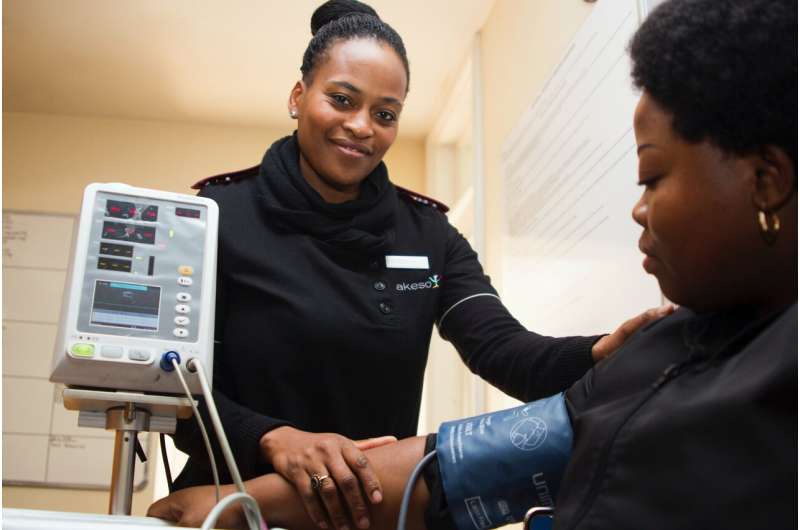Nurse involvement promotes discussion of advanced care planning during office visits

Most doctors would agree that advanced care planning (ACP) for patients, especially older adults, is important in providing the best and most appropriate health care over the course of a patient's life.
Unfortunately, the subject seldom comes up during regular clinic visits.
In a study conducted by doctors at Wake Forest Baptist Health, only 3.7% of primary care physicians had this conversation with their patients as part of their normal care. Yet in the same study, the researchers found that a new approach involving specially trained nurses substantially increased the frequency of doctors initiating ACP discussions with their patients.
The study is published in the Jan. 11 edition of JAMA Internal Medicine.
"As a primary care doctor I know how important it is to talk to patients about what quality of life means to them—playing with grandkids, cooking, going for a walk—and work to align their health care with those goals," said the study's principal investigator, Jennifer Gabbard, M.D., assistant professor of gerontology and geriatric medicine at Wake Forest School of Medicine, part of Wake Forest Baptist Health.
"We hoped to make it easier for doctors to have this conversation and give their patients a voice, so that if they got sicker, their doctors, caregivers and family would know their wishes and have it documented so it was easily accessible."
The year-long, randomized effectiveness trial enrolled 759 patients from eight primary care practices in North Carolina. The participants, age 65 or older, had multiple chronic conditions and either cognitive or physical impairments or frailty. The volunteers were randomized to either a nurse navigator-led group or a normal care group.
In the nurse-led group, a trained nurse navigator called the study participants before their annual wellness visit to explain advance care planning and to suggest topics to discuss with their doctor during the clinic visit, Gabbard said. That information then was recorded in the doctor's notes to provide a starting point for the conversation. Both patients and providers reported that this priming often made the visits go much more smoothly, Gabbard said.
To make it easier for healthcare providers to initiate a discussion of ACP, Gabbard's team developed an electronic health record documentation tool that provided a communication guide on how to ask questions and what the most common responses were to help guide the conversation. The information gleaned during the wellness visit was then documented in the patient's electronic health record by using the same tool.
"We wanted to create a way to easily document the patient's goals and values and store that information in a central location so regardless of the care setting any provider could find current information regarding the patient's priorities," Gabbard said.
The study showed that in the nurse group ACP was documented in 42% of the visits as compared to only 3.7% in the normal care group.
Findings from this trial suggest a promising new approach to ACP in the out-patient primary care setting and a potentially scalable approach to ACP for vulnerable older adults, Gabbard said.

















